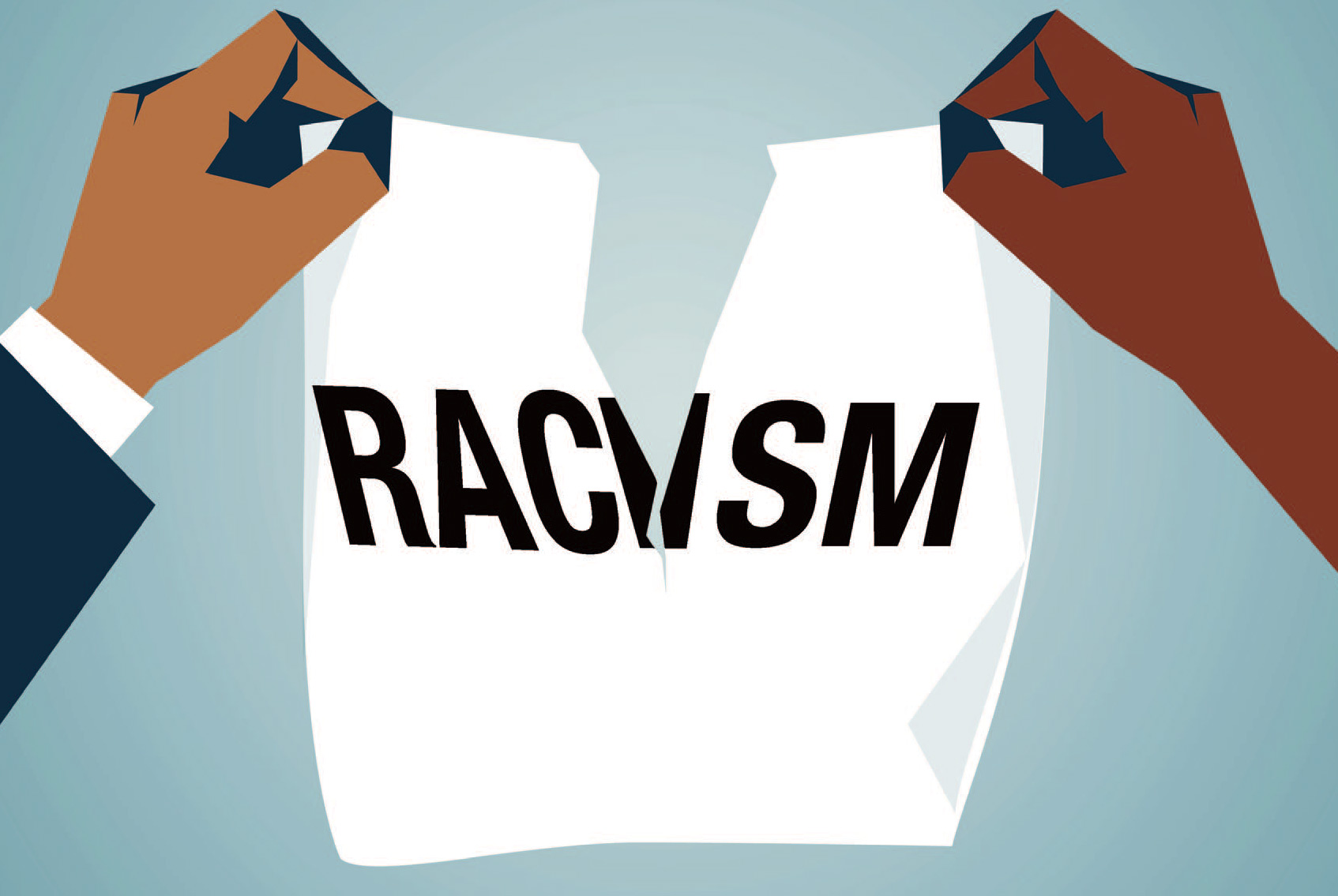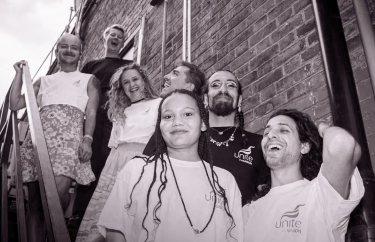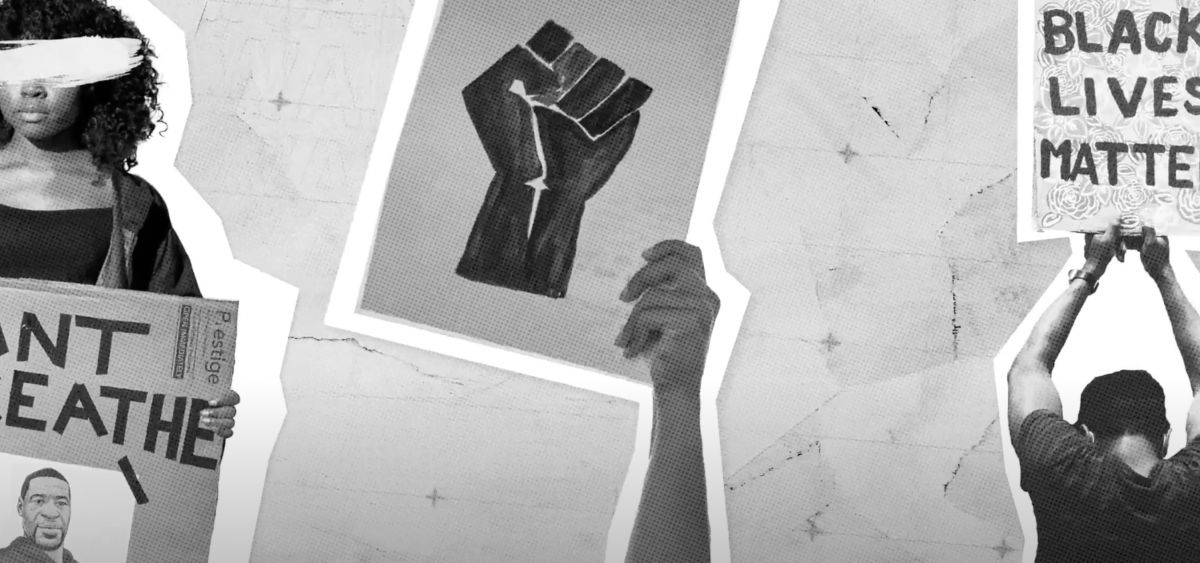
Anti-Racism Tracker
We’re taking forward the work of the TUC Anti-Racism Taskforce, by launching this tracker. This will keep track of the progress we’re making on our commitments to the anti-racism manifesto.
The tracker is for everyone – our union leaders, officers and members. Everyone should understand what progress their union should be making in each area of work when it comes to anti-racism.
The tracker is a live resource that will change as we move forward in this phase of work. We will add more of the commitments from the manifesto every year, and we will update what's been done highlighting where unions are doing good work.
Why is it important?
Trade union leaders made a pledge to commit to progressing social and economic justice for black people by campaigning against racism. If we are to make lasting change the next five years are crucial. In order to support unions to take action, we’ll be monitoring and tracking progress, as well as providing additional resources and guidance as needed.
Who is it for?
The tracker provides an opportunity for everyone to understand what progress their union has made, but also what they should be prioritising in each area of work. The tracker will provide suggestions and outline next steps, as well as sharing examples of where unions are leading the way.
How do you use it?
It’s simple, click on one of the four areas of work: collective bargaining, organising, campaigning and unions themselves – you will see a list of all the commitments related to each of the areas. Then follow through the tracker to see what work could be done in each area.
If you have any questions about the tracker, help and support with its rollout in your unions, or any other questions, contact Riz Hussain (Anti-Racism Officer) rhussain@tuc.org.uk
Download our Anti-Racism Tracker posters, leaflets and social graphics
Phase One (2022 – 2024)
Collective bargaining
- We will put racial equality at the centre of our collective bargaining agreements, by working alongside Black members to identify the key bargaining issues and making sure that Black workers voices are represented at the negotiating table.
-
What has been done?
The ARTF has produced a digital guide for trade union reps covering collective bargaining issues and monitoring in the workplace for Black workers.
What unions should do
Input into the TUC equality audit collective bargaining, so that we can identify trends and where more support is needed.
Adopt and deploy the negotiators guide/monitoring in the workplace for reps as part of training for all union representatives
What unions could do
Record the themes and trends of issues impacting their black members by conducting a survey, analysing data on casework and running focus groups.
Useful links
- We will work to improve the confidence of Black workers in our ability to represent them on all matters, including tackling racism at work, by providing adequate information to the TUC Equality Audit.
-
What has been done?
The TUC Anti-Racism Task Force conducted a listening activity to provide Task Force members, general secretaries, and senior union figures the opportunity to talk to Black workers and Black groups about the issue of racism at work. It aimed to explore representation in the workplace and to consider how unions can collectivise the experiences of individual race cases, particularly when setting their organising and bargaining priorities.
What unions should do
- Communicate the Union’s policy and anti-racism action plan and secure adoption by the National Executive or Conference.
- Encourage safe spaces for Black members and create a preventative culture.
- Train workplace reps to understand the law around racial discrimination and how to use it pro-actively to help members.
What unions could do
- Prioritise race equality as an industrial issue.
- Encourage and support reps to run anti-racism campaigns in the workplace
- Deliver anti-racism training for the national executive and other lay activists. This should focus on the use of language and terminology, and understanding what anti-racism means in practice.
- Foster an environment where members can share their lived experiences, and to be able to do this safely.
Useful links
- We will train and develop our caseworkers on the strategic use of litigation to advance racial justice in the workplace, integrating anti-racism principles in litigation and casework, and ensuring all staff follow an agreed litigation and campaign strategy for actively challenging racism.
-
What has been done?
We have begun to explore strategic litigation and bargaining on race. We aim to gather information about trade unions’ current approaches to legal casework involving racial discrimination cases. We will draw up a set of key recommendations to guide unions on how to adopt a strategic approach to race litigation cases.
What unions should do
- Train workplace reps to understand the law and how to use it pro-actively to help members.
- Mandatory training of reps to deal with race discrimination cases.
- Mandatory training of union casework staff on all aspects of the law when considering racial discrimination cases.
- Participate in the TUC legal officers network on strategic litigation and encourage closer collaboration between union lay reps, union officials and legal representatives.
What unions could do
- Proactively identify potential test cases on issues of disciplinary and capability outcomes, that have a disproportionately negative impact on Black workers.
- Ring-fence resources to race equality cases and highlight this to members
- Underline the commitment to having race equality at the heart of the union’s industrial work, by prioritising race equality issues when considering whether to support cases to tribunal stage.
- Share experiences of litigation across the movement and identify strategic issues that can be tested legally jointly.
Useful links
The Trade Union Challenge: Winning Legal Race Discrimination Cases
Case study:
Challenging divisive, racialised and anti-union exploitation at Amazon
"After years of patient organising, and last year’s unofficial sit-ins and walk-outs over pay, we have grown at Amazon Coventry to a point where 1,1000 people joined the strikes last month."
Read more
Organising
-
We will establish a programme to increase the representation of Black activists in our structures and set targets to improve the representation of Black workers at all levels in our union structures, including on our main decision-making bodies, nationally and regionally.
-
What has been done?
The TUC South West region launched a Black talent Programme, that was a year long organising programme for Black activists from across unions. There were 23 activists who participated in the programme.
A Solidarity Network has been launched in the South West headed by the cohort of Black activists on the Black Talent Programme
TUC Wales, Northern, North West, Yorkshire and Humber, and London and the South East all are in the process of launching their activist development programmes.
TUC Black Network, is the first step in the national recording of Black workers who are in the Trade Union movement.
What unions should do
Identify a programme of support for Black members and activists
Review education and training provision to ensure that anti-racism priorities are addressed at every level
Record and monitor data on:
- the number of Black members recruited to or exiting the union;
- trends in workplaces, employer groups or sectors;
- trends around recruitment or retention of those members;
- whether there are any trends in the representation of Black members holding elected roles and accessing facility release time
What unions could do
Think strategically about how they can prioritise organising in sectors that are predominantly occupied by Black workers
Identify and nominate Black activists to take part in all the TUC activist development programme
-
We will deploy targeted training, resources, and finances to build a network of Black trade union activists and to widen and develop the pool of experienced Black trade union tutors.
-
What has been done?
The TUC South West region launched a Black talent Programme, that was a year long organising programme for Black activists from across unions. There were 23 activists who participated in the programme.
A Solidarity Network has been launched in the South West headed by the cohort of Black activists on the Black Talent Programme
TUC Wales, Northern, North West, Yorkshire and Humber, and London and the South East all are in the process of launching their activist development programmes.
TUC Black Network, is the first step in the national recording of Black workers who are in the Trade Union movement.
What unions should do
Identify a programme of support for Black members and activists
Review education and training provision to ensure that anti-racism priorities are addressed at every level
Record and monitor data on:
- the number of Black members recruited to or exiting the union;
- trends in workplaces, employer groups or sectors;
- trends around recruitment or retention of those members;
- whether there are any trends in the representation of Black members holding elected roles and accessing facility release time
What unions could do
Think strategically about how they can prioritise organising in sectors that are predominantly occupied by Black workers
Identify and nominate Black activists to take part in all the TUC activist development programme
Useful links
-
We will monitor and evaluate our progress in recruiting and retaining Black workers in our unions, and collect data on Black reps recruited into rep roles.
-
What has been done?
The TUC South West region launched a Black talent Programme, that was a year long organising programme for Black activists from across unions. There were 23 activists who participated in the programme.
A Solidarity Network has been launched in the South West headed by the cohort of Black activists on the Black Talent Programme
TUC Wales, Northern, North West, Yorkshire and Humber, and London and the South East all are in the process of launching their activist development programmes.
TUC Black Network, is the first step in the national recording of Black workers who are in the Trade Union movement.
What unions should do
Identify a programme of support for Black members and activists
Review education and training provision to ensure that anti-racism priorities are addressed at every level
Record and monitor data on:
- the number of Black members recruited to or exiting the union;
- trends in workplaces, employer groups or sectors;
- trends around recruitment or retention of those members;
- whether there are any trends in the representation of Black members holding elected roles and accessing facility release time
What unions could do
Think strategically about how they can prioritise organising in sectors that are predominantly occupied by Black workers
Identify and nominate Black activists to take part in all the TUC activist development programme
-
We will ensure that our policies and procedures are effective in dealing with all forms of race discrimination and harassment within our lay structures, including offering an anonymous reporting process for members to raise concerns about their experiences when they interact with their union.
-
What unions should do
Publicise and promote the union’s commitment to zero tolerance of race discrimination and harassment.
Ensure there is a mechanism in place for members to report concerns.
Monitor issues and trends.
Train decision makers on anti-racist practice.
What unions could do
Mandatory training for national executives and staff.
Case study:
Breaking down barriers – Usdaw’s Black members development programme
Usdaw has developed a new education and skills programme for Black members which will act as a stepping stone to greater involvement in the Union and contribute to building a support structure for Black activists.
Read more
Campaigning
-
We will work alongside race equality organisations to highlight and challenge racist policies that impact on Black workers and the wider Black community.
-
What has been done?
There are numerous campaigns that trade unions are affiliated with to highlight racist policies that impact on Black workers, including the Windrush scandal, fire and rehire and the covid public inquiry.
Black workers and health and safety Health and Safety and Racism in the Workplace (June 2022); Dying on the Job (feb 2023); Introduction to H&S for black workers.
Our Work Matters Multi-union campaign with outsourced workers; Organising Call May, Parliamentary event June.
What unions should do
Identify what key race equality organisations you are working with and consider affiliation.
Invite lay activists to participate in the TUC Anti-Racism Activist Network to actively build relationships with the race equality organisations who are part of that network.
Agree and publicise your union’s anti-racism collective bargaining and public campaign priorities.
What unions could do
Audit what other race equality organisations you are working with, or potentially can work with on issues that have been passed as motions.
Set up your own anti-racism networks to build on the work they are doing with race equality organisations.
Share examples of best practice with other unions where partnerships and collaborations with race equality organisations have been constructive/helpful/good
Useful links
-
We will ensure all our campaigning and policy influencing explicitly consider and include race equality, including campaigning on casualisation, outsourcing, fire and rehire, mass redundancies, the hostile environment and holding the government to account through the Covid public inquiry.
-
What has been done?
There are numerous campaigns that trade unions are affiliated with to highlight racist policies that impact on Black workers, including the Windrush scandal, fire and rehire and the covid public inquiry.
Black workers and health and safety Health and Safety and Racism in the Workplace (June 2022); Dying on the Job (feb 2023); Introduction to H&S for black workers.
Our Work Matters Multi-union campaign with outsourced workers; Organising Call May, Parliamentary event June.
What unions should do
Identify what key race equality organisations you are working with and consider affiliation.
Invite lay activists to participate in the TUC Anti-Racism Activist Network to actively build relationships with the race equality organisations who are part of that network.
Agree and publicise your union’s anti-racism collective bargaining and public campaign priorities.
What unions could do
Audit what other race equality organisations you are working with, or potentially can work with on issues that have been passed as motions.
Set up your own anti-racism networks to build on the work they are doing with race equality organisations.
Share examples of best practice with other unions where partnerships and collaborations with race equality organisations have been constructive/helpful/good
Useful links
Case study:
50 new black activists signed up to the Black Activist Network
Our Work Matters is the joint union campaign for outsourced facilities management workers, such as cleaners and security guards.Attendees heard about TUC’s new campaign, how to get involved as well as from reps and members working in outsourced facilities management roles about the union wins they’ve had in their workplaces on key issues such as insourcing, sick pay and equal treatment.
Read more
Unions
-
We will work in partnership with our Black employees and with our staff trade unions to take forward our work on anti-racism.
-
What has been done?
The ARTF conducted an HR survey. The survey aimed to find out more about monitoring and policies to tackle racial disparities for Black staff working for trades unions, and actions to improve Black recruitment, retention, progression, and training amongst trade union staff.
The HR network is a key part of what we do with the results of survey. It is made up of union HR and equalities staff and seeks to examine some of the issues raised in the survey, create a support network for union staff working on this issue, and act as a space where best practice can be shared.
The ARTF unions as employers workstream commissioned Professor Kehinde Andrews and Dionne Taylor to investigate the experiences of Black staff working in trade unions. The research builds a picture of the employment experience of Black trade union employees. It’s the first of its kind to be carried out.
What unions should do
Convene meetings with Black employees on the Black employee survey, discuss findings and explore actions to take forward
Disseminate and discuss the findings of the Black Staff Survey with your national executive
Create race equality action plans for recruitment, retention, progression and training as a result of the evidence from the HR survey
Monitor issues and trends regarding the experiences of Black staff, including role profiles and job satisfaction
Publish your union’s race pay gap and action plan
What unions could do
Run a survey of Black staff in the union to explore issues including job satisfaction, experiences at work, career development, etc.
-
We will monitor and review our progress in relation to recruitment, retention, progression, promotion, performance management, discipline and grievance and training of Black employees and report on our progress annually.
-
What has been done?
The ARTF conducted an HR survey. The survey aimed to find out more about monitoring and policies to tackle racial disparities for Black staff working for trades unions, and actions to improve Black recruitment, retention, progression, and training amongst trade union staff.
The HR network is a key part of what we do with the results of survey. It is made up of union HR and equalities staff and seeks to examine some of the issues raised in the survey, create a support network for union staff working on this issue, and act as a space where best practice can be shared.
The ARTF unions as employers workstream commissioned Professor Kehinde Andrews and Dionne Taylor to investigate the experiences of Black staff working in trade unions. The research builds a picture of the employment experience of Black trade union employees. It’s the first of its kind to be carried out.
What unions should do
Convene meetings with Black employees on the Black employee survey, discuss findings and explore actions to take forward
Disseminate and discuss the findings of the Black Staff Survey with your national executive
Create race equality action plans for recruitment, retention, progression and training as a result of the evidence from the HR survey
Monitor issues and trends regarding the experiences of Black staff, including role profiles and job satisfaction
Publish your union’s race pay gap and action plan
What unions could do
Run a survey of Black staff in the union to explore issues including job satisfaction, experiences at work, career development, etc.
-
We will establish a comprehensive ethnicity pay gap reporting system and publish annual action plans to close any gaps.
-
What has been done?
The ARTF conducted an HR survey. The survey aimed to find out more about monitoring and policies to tackle racial disparities for Black staff working for trades unions, and actions to improve Black recruitment, retention, progression, and training amongst trade union staff.
The HR network is a key part of what we do with the results of survey. It is made up of union HR and equalities staff and seeks to examine some of the issues raised in the survey, create a support network for union staff working on this issue, and act as a space where best practice can be shared.
The ARTF unions as employers workstream commissioned Professor Kehinde Andrews and Dionne Taylor to investigate the experiences of Black staff working in trade unions. The research builds a picture of the employment experience of Black trade union employees. It’s the first of its kind to be carried out.
What unions should do
Convene meetings with Black employees on the Black employee survey, discuss findings and explore actions to take forward
Disseminate and discuss the findings of the Black Staff Survey with your national executive
Create race equality action plans for recruitment, retention, progression and training as a result of the evidence from the HR survey
Monitor issues and trends regarding the experiences of Black staff, including role profiles and job satisfaction
Publish your union’s race pay gap and action plan
What unions could do
Run a survey of Black staff in the union to explore issues including job satisfaction, experiences at work, career development, etc.
-
We will ensure zero tolerance of racism in our workplaces.
-
What has been done?
The ARTF conducted an HR survey. The survey aimed to find out more about monitoring and policies to tackle racial disparities for Black staff working for trades unions, and actions to improve Black recruitment, retention, progression, and training amongst trade union staff.
The HR network is a key part of what we do with the results of survey. It is made up of union HR and equalities staff and seeks to examine some of the issues raised in the survey, create a support network for union staff working on this issue, and act as a space where best practice can be shared.
The ARTF unions as employers workstream commissioned Professor Kehinde Andrews and Dionne Taylor to investigate the experiences of Black staff working in trade unions. The research builds a picture of the employment experience of Black trade union employees. It’s the first of its kind to be carried out.
What unions should do
Convene meetings with Black employees on the Black employee survey, discuss findings and explore actions to take forward
Disseminate and discuss the findings of the Black Staff Survey with your national executive
Create race equality action plans for recruitment, retention, progression and training as a result of the evidence from the HR survey
Monitor issues and trends regarding the experiences of Black staff, including role profiles and job satisfaction
Publish your union’s race pay gap and action plan
What unions could do
Run a survey of Black staff in the union to explore issues including job satisfaction, experiences at work, career development, etc.
-
We will set targets for race equality in our workplaces and work to improve the representation of Black employees in senior positions in our union structures.
-
What has been done?
The ARTF conducted an HR survey. The survey aimed to find out more about monitoring and policies to tackle racial disparities for Black staff working for trades unions, and actions to improve Black recruitment, retention, progression, and training amongst trade union staff.
The HR network is a key part of what we do with the results of survey. It is made up of union HR and equalities staff and seeks to examine some of the issues raised in the survey, create a support network for union staff working on this issue, and act as a space where best practice can be shared.
The ARTF unions as employers workstream commissioned Professor Kehinde Andrews and Dionne Taylor to investigate the experiences of Black staff working in trade unions. The research builds a picture of the employment experience of Black trade union employees. It’s the first of its kind to be carried out.
What unions should do
Convene meetings with Black employees on the Black employee survey, discuss findings and explore actions to take forward
Disseminate and discuss the findings of the Black Staff Survey with your national executive
Create race equality action plans for recruitment, retention, progression and training as a result of the evidence from the HR survey
Monitor issues and trends regarding the experiences of Black staff, including role profiles and job satisfaction
Publish your union’s race pay gap and action plan
What unions could do
Run a survey of Black staff in the union to explore issues including job satisfaction, experiences at work, career development, etc.
Case study:
NASUWT Teachers' Union - Black Staff Forum
Following an initial questionnaire sent to all Black staff in 2019 to establish the experiences of Black staff in the workplace, the Forum has gone from strength to strength as a key body endorsed by the National Executive for driving forward the union's anti-racism agenda.
Read more

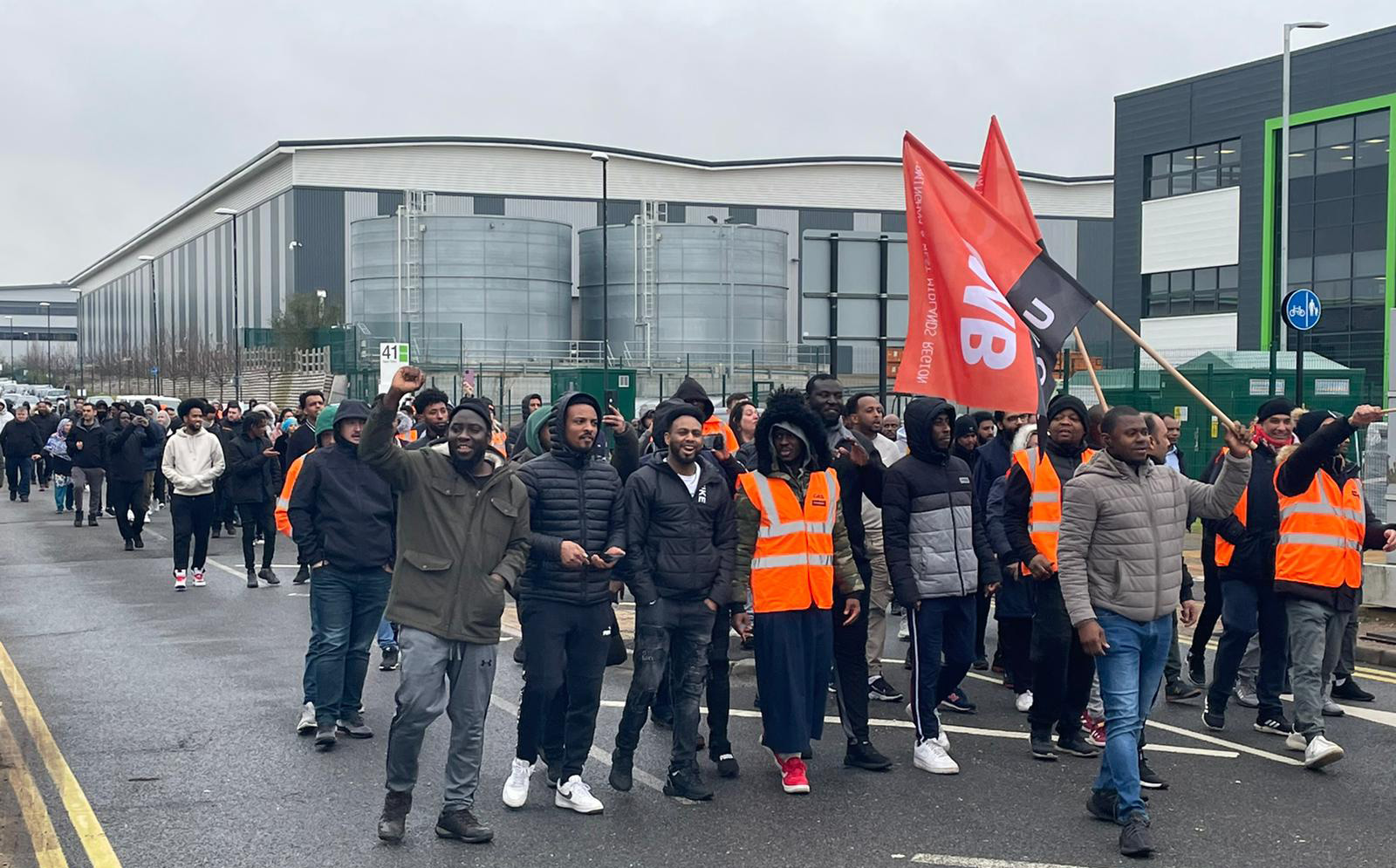
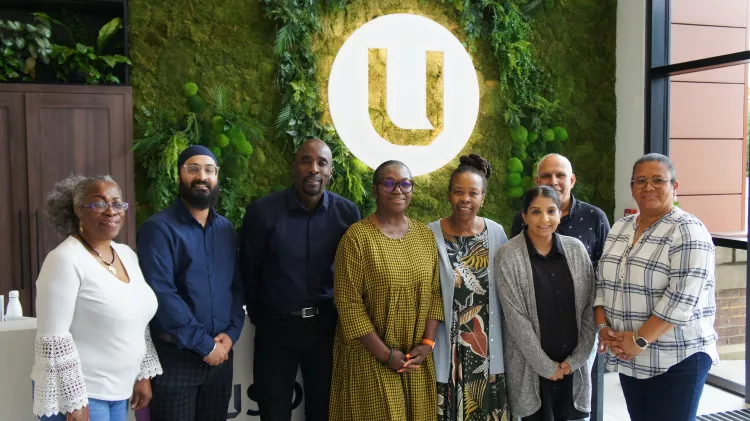
_2.png)
